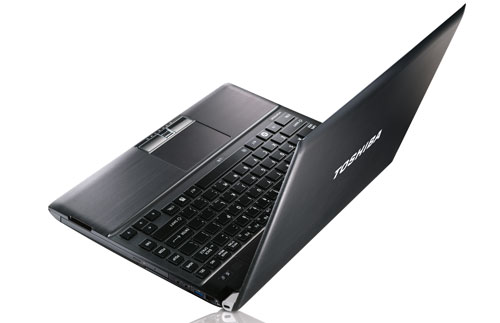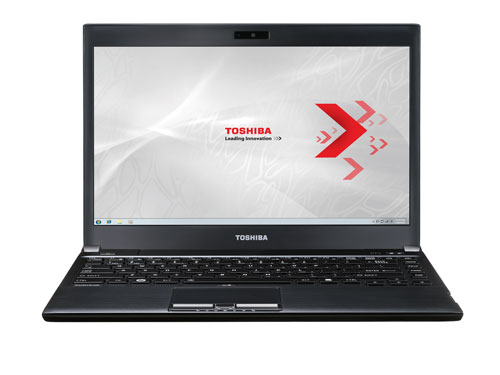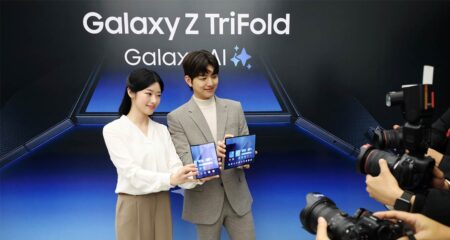
Just as every hardware manufacturer has leapt onto the tablet computer bandwagon with varying degrees of success, so, too, they’re racing to get ultraportable laptop computers to market.
Toshiba’s latest offering, the Portégé R830, offers great competition in terms of price and features, even if it doesn’t do as well in terms of form or finish.
The R830, like other ultraportables, is aimed at travellers and mobile workers that require high-end performance combined with portability, and it certainly hits its mark — in the first category at least.
Available in a variety of specifications, TechCentral’s review model included a Core i7 processor, 4GB of RAM (expandable to 8GB), and a 500GB Sata hard drive.
The Portégé R830 offers two USB 2.0 ports — one of which doubles as a welcome eSata connection — one USB 3.0 port and HDMI-out, along with the regular VGA, Ethernet and audio ports.
The inclusion of USB 3.0 and eSata connections is particularly noteworthy, as some ultraportables forgo these, limiting their longevity in the process. One of the most interesting decisions is the inclusion of an optical drive — something most competitors don’t offer due to space constraints and the desire to keep weight down. Considering how seldom people use their laptops’ optical drives, the added bulk and thickness the inclusion of one creates in the Portégé R830 makes us think Toshiba would’ve done better to leave it out.
It’s this bulk that is one of the big failings of the Portégé R830. At 1,5kg it’s no mainframe on wheels, but it could have been a bit lighter with the drive left out.
Also, the plastic outer shell and glossy trackpad and power and shortcut buttons feel cheap and collect dirt. The trackpad itself is fairly responsive, but the fingerprint reader between the buttons is awkward and the buttons themselves make a somewhat unpleasant clicking sound when pressed.

With a 13,3-inch, 1366×769-pixel display, the Portégé R830 matches the likes of Samsung’s far more expensive Series 9 range, but comes in a little shy of the 1440×900 pixel resolution offered by the device that started the ultraportable craze in the first place, Apple’s MacBook Air.
Of course, both the Samsung and Apple are considerably more expensive than the Portégé R830’s entry-level price tag of R8 999. Clearly it’s this price difference that led Toshiba to make the compromises it did, including the fact that it’s a third thicker than either and doesn’t offer a solid-state drive option.
Unfortunately, these compromises are present in the keyboard, too. Aside from the fact that the keys are rectangular rather than square — which takes some getting used to — heavy-handed typists will notice tangible give in the middle of the keyboard, something which doesn’t inspire confidence.
Also, like the trackpad buttons, the keyboard keys feel cheap and, although sufficiently low profile, aren’t the quietest by any measure.
In terms of its innards, the Toshiba is a competent and capable device, but it’s let down by the poor quality of its finish. A key aspect of any ultraportable is that it’s likely to have to endure a lot of mileage and the Toshiba simply doesn’t feel up to the task.
One area where the Portégé R830 excels, however, is battery life. Rated for nine hours, we actually got around six during moderately demanding use, but that’s still fairly respectable.
The Portégé R830 range costs between R8 999 and R12 999 depending on specifications, and although that makes it cheaper than many of its peers, we’d recommend spending a little extra for a machine with a better build quality. — Craig Wilson, TechCentral
- Subscribe to our free daily newsletter
- Follow us on Twitter or on Google+ or on Facebook
- Visit our sister website, SportsCentral (still in beta)




